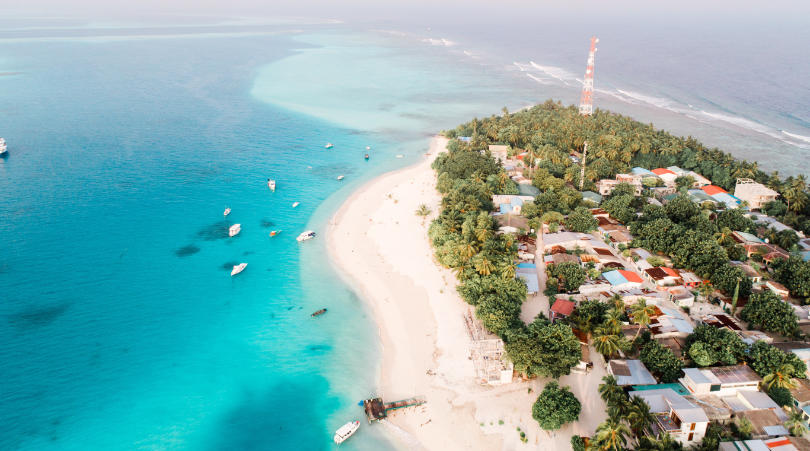Traveling the world as a Muslim comes with unique joys and challenges. While discovering new places is exciting, maintaining religious obligations such as eating halal food, performing daily prayers, and preserving modesty can require extra planning. That’s where a Halal Travel Guide becomes invaluable.
This guide is designed to help Muslim travelers plan meaningful, stress-free, and spiritually fulfilling trips without compromising their Islamic values. Whether you’re traveling solo, with your family, or as a couple, this comprehensive halal travel guide will walk you through everything you need to know for a smooth and enjoyable journey.
What Is Halal Travel?
Halal travel refers to travel experiences that align with Islamic principles. These trips consider religious practices such as:
- Access to halal food and drinks
- Availability of prayer facilities
- Modesty in dress and activity options
- Avoidance of non-permissible environments (e.g., places serving alcohol or promoting gambling)
- Visits to Islamic cultural or historical sites
Muslim travelers are increasingly looking for destinations that not only offer beauty and adventure but also respect their religious lifestyle.
Step-by-Step Halal Travel Guide
1. Choose a Muslim-Friendly Destination
The first step in any halal trip is selecting a location that caters to Islamic needs. Destinations like Malaysia, Turkey, UAE, Indonesia, Morocco, and Bosnia are well-known for offering halal-friendly tourism services.
These countries offer:
- Abundant halal food options
- Mosques and prayer areas in public spaces
- Islamic culture and heritage
- Family-friendly and modest environments
Even non-Muslim-majority countries like Japan, Thailand, and the UK are increasingly offering halal-friendly services to welcome Muslim tourists.
2. Plan Halal Accommodation
When booking your hotel, make sure it meets key halal criteria:
- Offers halal food (check for certification or ask in advance)
- Includes Qibla direction, prayer mats, and Qur’an in rooms
- Has alcohol-free environments or alternatives
- Provides separate spa/gym facilities for men and women
Websites like HalalBooking.com and Muslim-Friendly.com specialize in providing verified halal hotel options worldwide.
3. Halal Food and Dining
Food is one of the most important aspects of halal travel. A proper halal travel guide will always recommend checking for:
- Halal certification in restaurants
- Online platforms like Zabihah.com or HalalTrip app to locate halal eateries
- Local supermarkets for buying halal snacks and instant meals
In non-Muslim countries, opt for vegetarian or seafood dishes if certified halal food isn’t available, and ask staff about ingredients or cooking practices.
4. Find Prayer Facilities
Maintaining daily prayers while traveling is essential. Many airports, shopping malls, and tourist attractions now offer prayer rooms. Use apps like:
- Muslim Pro – for prayer times, Qibla direction, and nearby mosques
- IslamicFinder – for masjid locations
- HalalTrip – for complete halal travel support
It’s also a good idea to pack a travel prayer mat and portable compass in case you’re outdoors or in remote areas.
5. Pack Modestly and Smartly
Islamic guidelines encourage modest dress, and this becomes even more important while traveling. In many Muslim-friendly destinations, locals appreciate tourists who dress respectfully.
Packing tips:
- Lightweight, long-sleeved clothing for warm climates
- Modest swimwear (burkinis) for beaches and pools
- Headscarves or shawls for women visiting religious sites
- Compact prayer essentials and snacks for long trips
6. Explore Islamic Attractions
One of the highlights of halal travel is exploring Islamic heritage sites. These not only enrich your spiritual experience but also deepen your understanding of Islamic history.
Some notable places to include in your itinerary:
- Blue Mosque and Hagia Sophia (Turkey)
- Masjid al-Haram and Masjid an-Nabawi (Saudi Arabia)
- Alhambra Palace (Spain)
- Sultan Qaboos Grand Mosque (Oman)
- Islamic Arts Museum (Malaysia)
Even in countries with smaller Muslim populations, you can often find mosques and Islamic centers offering cultural tours.
7. Book Halal Travel Packages
For hassle-free planning, consider booking a halal travel package through agencies that specialize in Muslim-friendly tourism. These often include:
- Halal hotels and meals
- Guided tours of Islamic sites
- Family- or women-only travel groups
- Safe transport and English-speaking guides
Some popular halal travel agencies include HalalBooking, CrescentRating, Rooh Travel, and HalalTrip.
Bonus Tips for a Smooth Halal Travel Experience
- Travel Insurance: Choose providers that offer Sharia-compliant coverage
- Friday Prayers: Plan Fridays around a local mosque visit
- Local Customs: Research the cultural norms of your destination to show respect
- Avoid Peak Times: Travel in off-seasons for better prices and quieter spaces
- Stay Connected: Use Islamic travel blogs and forums to get advice and updated tips
Conclusion
With the right planning and resources, traveling as a Muslim has never been easier. This halal travel guide serves as your blueprint to explore the world without compromising your faith. Whether you’re visiting the historic cities of the Middle East, relaxing on the beaches of Southeast Asia, or exploring Islamic heritage in Europe, you can enjoy a spiritually mindful and enjoyable experience.
Remember: Halal travel is not just about avoiding what’s haram—it’s about discovering what’s beautiful and permissible in every corner of the world.
